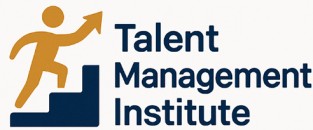Understanding the Role of Staffing Agencies in HR
Decoding Staffing Agency Roles in Human Resources
In the ever-changing landscape of human resources, staffing agencies have carved out a significant niche. These agencies serve as a crucial bridge between job seekers and the companies looking to hire human resources talent. Through their specialized recruitment services and talent acquisition strategies, staffing agencies aid in the placement of qualified candidates, addressing the human resource needs of businesses.
Staffing agencies offer a range of staffing solutions tailored to different business requirements. Whether it is direct hire placements, temp hire solutions, or executive search services, these agencies help companies streamline their recruitment processes. By leveraging these agencies, businesses can effectively minimize hiring risks and maximize their chances of acquiring top talent.
Working with human resources staffing agencies provides several benefits. They have vast industry-specific knowledge and access to extensive talent networks. This enables them to find candidates who match the job requirements swiftly and precisely. By collaborating with these agencies, companies can focus on their core business functions while outsourcing recruitment tasks to experienced recruiters equipped with efficient hiring strategies.
As businesses expand and evolve, the demand for skilled human resources staffing support continues to rise. Managing a company’s workforce demands attention to detail and strategic planning. It’s here that staffing agencies become indispensable allies, providing tailored solutions to meet these challenges effectively.
For a deeper understanding of human resource practices and management, various resources such as
essentials of human resource management can be invaluable. With each step forward, businesses and staffing agencies together enhance the landscape of talent acquisition, contributing significantly to their respective sectors.
Benefits of Partnering with a Staffing Agency
Positive Aspects of Collaborating with Staffing Agencies
Engaging with staffing agencies can significantly benefit companies in the arena of human resources staffing. Some notable advantages highlight why many businesses consider such partnerships crucial:
- Access to Diverse Talent Pools: Staffing agencies maintain wide-ranging databases that include various candidates, from entry-level to executive search. This access helps companies find the specific talent they need for both temporary and long-term placement.
- Time and Resource Efficiency: Recruitment processes can be resource-intensive. By leveraging the services of a staffing agency, businesses can save time and effort, allowing internal HR teams to focus on strategic tasks essential to talent acquisition.
- Expertise in Matchmaking: These agencies are well-versed in matching job seekers with suitable roles and ensuring alignment with the company's culture and objectives. This expertise reduces the likelihood of hiring mismatches and ensures that the company hires top talent appropriate for the job.
- Scalability and Flexibility: Staffing agencies can quickly adapt to changes in business needs, providing staffing solutions that accommodate seasonal demands, special projects, or rapid business growth. This flexibility allows managers to maintain optimal team performance without unnecessary stress.
- Enhanced Hiring Practices: With specialized knowledge in recruiting, these agencies can enhance hiring practices, improving the quality of hires and retention rates. Their insights and tools help streamline the hiring process and improve the company’s hiring strategies.
The increased efficiency and enhanced recruitment practices delivered by staffing agencies not only provide businesses with peace of mind but also a competitive edge. As businesses continue to evolve, this partnership remains vital in managing complex human resources needs. For more insights, consider exploring
the future of human resources in the rapidly changing business landscape.
Challenges Faced by Staffing Agencies
Overcoming the Obstacles in the Staffing Arena
Navigating the intricate world of human resources staffing comes with its own set of challenges. Primarily, staffing agencies face the struggle of matching the right talent with the right job opportunities, a task that requires a keen understanding of both the job-seekers' aspirations and the employers' needs.
One of the core challenges is the dynamic nature of the business landscape. With companies constantly evolving, maintaining a pool of qualified candidates for recruitment and placement becomes a moving target for any staffing agency. Additionally, the pressure to deliver talent acquisition results promptly adds a significant layer of complexity.
Agencies also have to confront:
- Talent Shortage: As the demand for specialized skills increases, finding the right job seekers who meet the diverse qualifications becomes tougher. This scarcity in talent resources often forces agencies to look for creative staffing solutions or even invest in long-term relationships to ensure a ready pool of candidates.
- Technological Disruption: Technology's imprint on the staffing sphere cannot be ignored. While advancements can aid the recruitment process, they simultaneously add a layer of complexity, requiring agencies to continuously update their tech tools to stay competitive.
- Regulatory Compliance: Ensuring compliance with evolving regulations is another hurdle for staffing agencies. This demands a meticulous approach to managing both human resources and operational workflows.
To
optimize human resources staffing for effective talent management, agencies need to adopt proactive strategies that include fostering a robust pipeline of talent and leveraging technology effectively, while also ensuring they remain compliant with regulatory requirements. Overcoming these hurdles is key to not just survive, but thrive in the fast-paced world of human resources staffing.
Strategies for Effective Talent Management
Maximizing Talent Utilization Through Strategic Management
Developing a successful talent management strategy is essential for any company seeking to optimize their resources staffing. A well-executed plan not only helps with identifying and hiring top candidates but also ensures their long-term engagement and development within the organization.
A staffing agency’s role in strategic talent management extends beyond mere placement. It involves a thorough understanding of the client's business needs and the ability to align human resources with those requirements. Here’s how effective talent management strategies can be put into place:
- Customized Recruitment Process: Tailoring the recruitment process is crucial to meeting the specific needs of a business. This includes identifying the competencies and skills that align with the business's goals and ensuring the recruitment solutions are designed to find job seekers who meet these criteria.
- Implementing a Robust Talent Acquisition Plan: This involves using various channels and methods to reach potential candidates. By utilizing direct hire options and temp hire services strategically, staffing agencies can create a flexible and responsive hiring process.
- Ongoing Talent Development: Beyond hiring, it’s crucial to have a clear plan for talent development. Resources talent management includes providing employees with opportunities for training and advancement to nurture their skills and increase their value to the company.
- Creating an Inclusive Culture: An inclusive work environment where all employees feel valued can help retain talent. This aspect of human resource management encourages diversity and equality, which boosts employee satisfaction and reduces turnover.
- Effective Use of Technology: With the advancement of HR technology, staffing solutions now involve data-driven insights to enhance recruitment and management processes. This helps in assessing talent requirements accurately and deploying resources efficiently.
By focusing on these strategies, staffing agencies can help businesses not only in reducing recruitment time but also in ensuring that they hire top candidates who align closely with the company’s strategic goals. This not only addresses immediate staffing needs but also promotes a robust long-term workforce strategy.
Technology's Impact on Staffing Agencies
The Evolution of Technology in the Staffing Sector
In recent years, the rapid advancement of technology has significantly reshaped the landscape of human resources staffing. With tools becoming more sophisticated, staffing agencies find themselves at the forefront of tech-driven recruitment, enhancing their ability to deliver top talent acquisition services efficiently.
One of the most significant technological impacts on staffing agencies is the increased use of applicant tracking systems (ATS). These systems streamline the recruitment process by automating the tracking and management of candidates, allowing agencies to help companies find and hire the right candidates swiftly. By leveraging these systems, human resources recruiters can reduce the time it takes to fill positions, providing a better staffing solution to clients.
Moreover, the use of artificial intelligence (AI) and machine learning in recruitment has grown exponentially. AI analytics can sift through vast amounts of data to identify patterns, predict candidate success, and match candidates to suitable roles more accurately than ever before. This means agencies are better equipped to provide long-term job placements that align well with company cultures, reducing turnover rates.
Social media and online job platforms have also transformed how agencies access talent. These platforms provide direct access to a broader pool of active and passive job seekers, enabling a more dynamic recruitment process. Agencies can engage with potential candidates in real time, enhancing communication and building relationships with top talent even before formal hiring processes begin.
The rise of mobile-friendly recruitment solutions enables agency managers and job seekers to access information and opportunities on the go. This flexibility is particularly beneficial in the fast-paced world of temp hire and executive search, where timely responses can make the difference in securing the best candidates for crucial positions.
As technology continues to evolve, staffing agencies are finding new ways to incorporate digital tools into their operations. This ongoing adaptation not only helps them remain competitive in the current market but also positions them to address future challenges in resources staffing.
Future Trends in Human Resources Staffing
Trends Shaping the Future of Human Resources Staffing
In the ever-evolving landscape of human resources staffing, several emerging trends are set to transform the way agencies operate. Keeping a pulse on these developments can help staffing agencies remain competitive and effective in connecting businesses with the right talent.
- Increased Use of AI and Automation: Artificial intelligence and automation are increasingly being incorporated into staffing processes. From screening resumes to identifying the best job candidates, these technologies can significantly reduce time and effort, allowing human resource professionals to focus on strategic planning and human-centric tasks.
- Data-Driven Recruitment Strategies: The collection and analysis of data are becoming critical components of the recruitment process. By leveraging metrics and analytics, staffing agencies can identify trends, improve candidate matches, and refine hiring processes to successfully meet company needs.
- Remote Work and the Gig Economy: The popularity of remote work and the gig economy has changed the landscape of staffing solutions. Agencies now face the challenge of recruiting candidates who are not only qualified but also well-suited for flexible work environments and temporary hire roles.
- Diversity, Equity, and Inclusion Initiatives: More than ever, businesses are prioritizing diversity, equity, and inclusion (DEI) in their recruitment processes. Staffing agencies are thus compelled to focus on DEI strategies, helping companies hire candidates from varied backgrounds and promote inclusivity.
- Focus on Long-Term Relationships: Staffing agencies are moving towards building longstanding relationships with both companies and candidates. By understanding the intricacies of client businesses and maintaining a talent pool of loyal job seekers, agencies enhance their credibility and reliability.
For those involved in human resources, being aware and responsive to these trends is crucial for future-proofing strategies and ensuring that the workforce needs are met effectively. As the job market continues to evolve, the role of staffing agencies as critical partners in talent placement will undoubtedly deepen.













